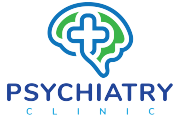Can you get OCD later in life? Comprehensive Guide
The question arises can you get OCD later in life? OCD, also known as Obsessive Compulsive Disorder, is a mental health disorder that affects both children and adults. It is a chronic condition characterized by repetitive thoughts (obsessions) and behaviors (compulsions) that interfere with daily life.
In this blog, we will discuss the possibility of developing OCD later in life and the factors that contribute to its development.
Let’s dive in to get more details.
Can you get OCD later in life?

The question asked by many people who suffer from OCD can you get OCD later in life? The short answer is yes, you can develop OCD later in life. While it is more commonly diagnosed during adolescence and early adulthood, it is not uncommon for individuals to develop OCD in their 30s, 40s, or even later.
In fact, studies have shown that about 25% of individuals with OCD develop the disorder after the age of 35. This may be due to a combination of genetic and environmental factors.
Factors that contribute to developing OCD later in life
There are several factors that may contribute to someone developing OCD later in life. These can include:
Genetic predisposition:
People with a family history of OCD are more likely to develop the disorder themselves, even if they didn’t experience symptoms earlier in life.
Major life changes or stressors:
Significant life events such as the death of a loved one, divorce, or job loss can trigger OCD symptoms in individuals who may be genetically predisposed to the disorder.
Traumatic experiences:
Traumatic events, such as physical or emotional abuse, can also contribute to the development of OCD later in life.
Medical conditions:
Certain medical conditions, such as brain injuries or infections, have been linked to the onset of OCD symptoms.
Substance abuse:
Substance abuse can also increase the risk of developing OCD in individuals who may have a genetic predisposition.
Seeking help for late-onset OCD
If you are experiencing symptoms of OCD later in life, it is crucial to seek help from a mental health professional. While the disorder may have developed later in life, it is still treatable using therapy, medication, or a combination of both.
It is also important to remember that there is no shame in seeking help for a mental health disorder. Seeking treatment can significantly improve your quality of life and help you manage your symptoms.
Coping with late-onset OCD
Coping with any mental health disorder can be challenging, but there are ways to manage and cope with late-onset OCD. Some strategies that may help include:
Educating yourself about the disorder:
Understanding what OCD is and how it affects you can be a powerful tool in managing your symptoms.
Joining a support group:
Connecting with others who have experienced similar struggles can provide valuable support and understanding.
Practicing self-care:
Engaging in activities that bring you joy and relaxation can help reduce stress and improve your overall well-being.
Seeking therapy:
A trained therapist can work with you to develop coping strategies and address any underlying issues contributing to your OCD.
Treatment options for late-onset OCD
There are several treatment options available for OCD, including:
Cognitive-behavioral therapy (CBT):
This type of therapy focuses on identifying and changing negative thought patterns and behaviors associated with OCD.
Exposure and Response Prevention (ERP):
A form of CBT that involves gradually exposing individuals to their triggers and preventing them from engaging in compulsive behaviors.
Medication:
Selective serotonin reuptake inhibitors (SSRIs) are commonly prescribed for OCD and can help reduce symptoms when used in combination with therapy.
Conclusion
Th question arises in many people mind can you get OCD later in life? While it is possible to develop OCD later in life, it is not something that should be feared. With the right treatment and support, individuals with late-onset OCD can manage their symptoms and improve their quality of life.
Remember, it is never too late to take care of your mental health. So take that first step towards a healthier and happier life today.
FAQs
Frequently asked questions by people.
Is it possible to get OCD later in life?
Yes, it is possible to develop OCD later in life. Studies have shown that about 25% of individuals with OCD develop the disorder after the age of 35.
Who do I talk to if I think I have OCD?
If you believe you may be experiencing symptoms of OCD, it is important to seek help from a mental health professional. This can include a therapist, psychiatrist, or your primary care physician.
What is the best treatment for OCD?
The best treatment for OCD will vary from person to person. It is important to work with a mental health professional to determine the best course of treatment for your individual needs.

